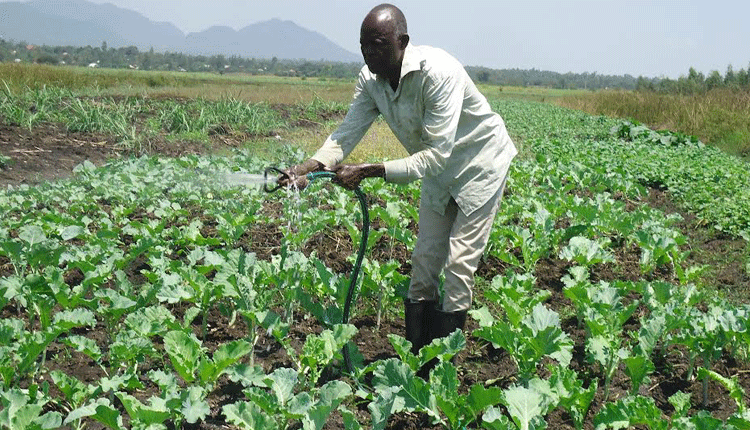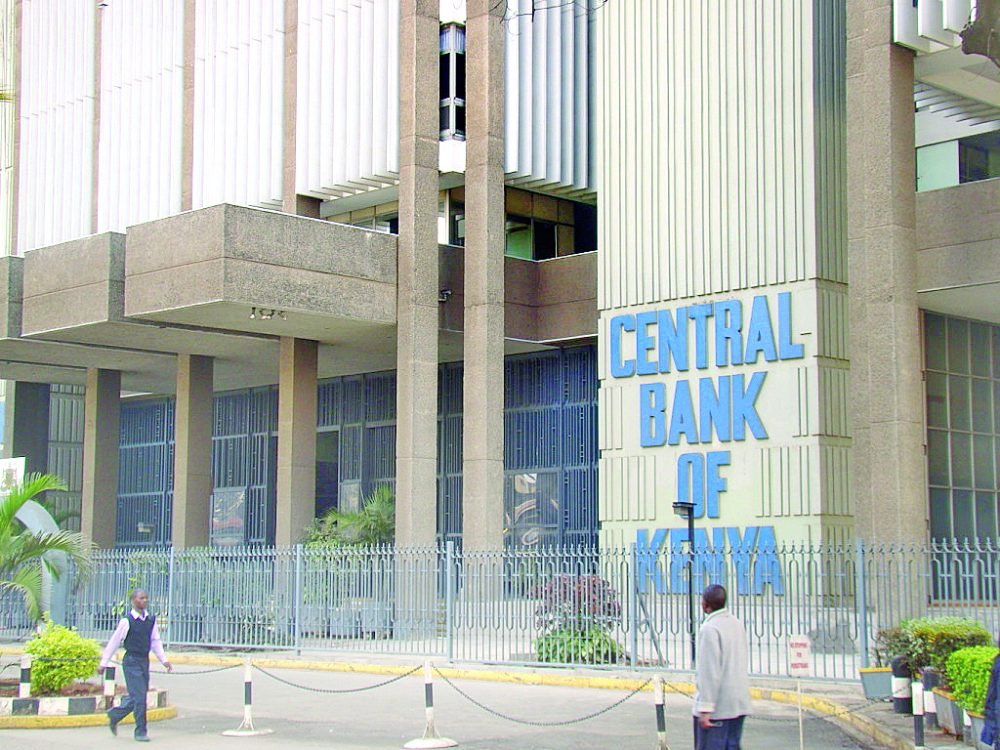How solar-powered irrigation is changing farmer’s fortunes

In the quiet village of Kamser Nyakongo in Karachuonyo sub-county, Homa Bay county lies Mika Abiero’s horticulture farm.
Abiero is among the few small-holder farmers across the country who have embraced solar-powered irrigation technology to boost their agricultural production.
He applies the farming model to grow different varieties of leafy vegetables, such as spinach, sukuma wiki, cowpeas and managu (psedocapsicum), a venture that rakes him good returns besides championing realisation of food security locally.
He uses solar-generated energy to pump water from a seasonal river adjacent to his one-acre farm.
The system is put in an open space to maximise on uptake of photons present in natural daylight and the solar panel fixed to two pipes, one siphoning water from the main source and the other extending into the farm, which is used for watering the crops.
“I started off about one and half years ago with a quarter-acre farm before expanding my scale of production in subsequent periods.
The agribusiness looks promising because it generates reliable income for me,” he says.

Abiero got into farming with averagely Sh60,000 as seed capital, from which he used Sh48,000 to purchase the solar panel and the balance was spent on preparing the land, seeds and labour.
He developed interest in using the technique following the advice of agricultural experts who told him about the benefits of its application in farming.
To this end, he is beginning to reap from the noble venture, which took off on a good start from the onset.
Every week, he harvests between four and five sacks of vegetables. A sack retails at about Sh2,000 in the local market depending on the market price, and on a good month, he takes home at least Sh40,000 in profits from selling the vegetables. His main clients are traders and households in Homa Bay county.
According to Abiero, he enjoys a lucrative market, especially during dry spells when the supply of vegetables dwindles translating into high demand in the market.
“Farming has offered me a ray of hope in life, I hardly lack money to sustain my family and meet other basic needs,” he states.
Kales production starts by raising the seedlings in a well prepared nursery bed.
The seedlings take about three weeks to transplanting when they have four true leaves and are about 10 centimetres tall.
The vegetables then mature for harvesting between three and four weeks of growth from transplanting.
The other varieties are propagated directly on the farm. The farmer emphasises that maintenance practices, such as regular spraying and weeding are key in keeping the vegetables healthy. This, he says, ensures better yields.
Abiero sprays his farm every week to keep pests at bay. And with the solar technology and reliable source of water, he is able to produce consistently throughout the year.
Cost-effective energy
The farmer points out that the solar energy farming concept is advantageous, because it only needs sunlight to operate, uses cost-effective renewable energy, increases operational flexibility and ensures continuity in production even during dry seasons.
Further, he says there is efficiency in production, because the panels are portable and can be placed anywhere near a water source.
“This is a concept worth being embraced by farmers, there is no cost incurred in fuelling the solar gadget, because it only requires sunlight to operate. Besides, you will spend little time irrigating your farm,” he explains.
Ordinarily, Abiero notes that the solar device can serve up to a two-acre farm at ago.
He encourages farmers in the county to embrace modern farming techniques, strive to diversify their production to increase agricultural productivity and grow the economy.
“There is a great potential for farming in the area. Farmers can utilise the opportunity to ensure food sufficiency in the county,” Abiero says.
Similarly, the farmer urges the county government to empower upcoming farmers as a way of enhancing food production and ending poverty.
Floods menace
Specifically, he says the devolved unit should support farmers with farm inputs, as well as offer them technical know-how in order to enhance their production capacity.
The farmer points at seasonal floods caused by the river overflow, particularly during rainy seasons as a major challenge to his venture, as the floods wash away crops.
Amos Amenya, an agronomist attached to the Lake Basin Development Authority says solar technology provides potential local farmers with best opportunities to tap into and grow their production.
Amenya states that the new innovation irrigation system is viable for agricultural production, while urging farmers to take advantage of such technologies to increase food productivity locally.
He says increased uptake of solar-powered irrigation systems by vegetable farmers will adequately supply locals with vegetables without necessarily having to buy such produce from elsewhere.
“The solar system is extremely viable, especially in areas where we don’t have established irrigation structures.
Depending on the kind of plants they are growing, our farmers should go for such technologies to ensure food sufficiency,” says Amenya, adding that the solar technology is self-regulating, cost effective and easy to operate.
For better yields, the agronomist stresses the need to ensure local farmers are taught proper farm practices, such as best use of chemicals to control pests and urges farmers to seek agricultural experts advice and be cautious with the source of planting materials they use.
“Farmers should consult closely with the local extension officers to ensure they practice farming correctly.
They should also use seeds sourced from certified suppliers,” Amenya advises.












